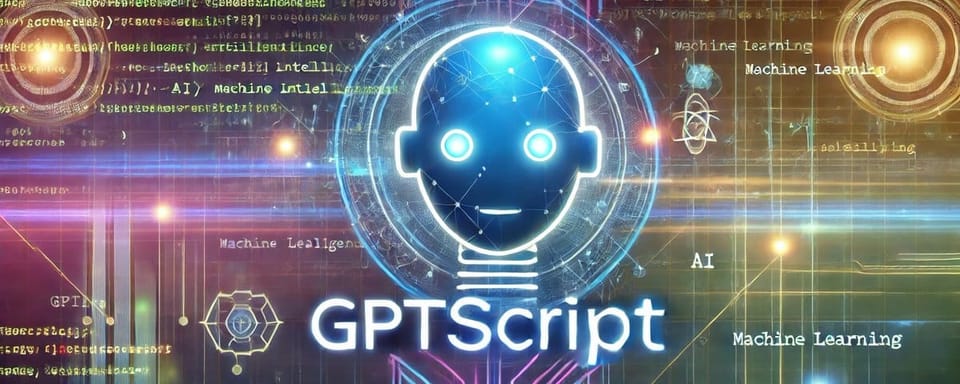Enhancing CI/CD and Automation with GPTScript: A Game Changer for DevOps

GPTScript: The AI-Powered Scripting Language for Automation
The advent of AI in software development has brought about a plethora of tools that have revolutionized how developers write, test, and deploy code. One such innovative tool is GPTScript, a versatile scripting language powered by AI, designed specifically for integration into continuous integration/continuous deployment (CI/CD) processes and other automation tasks. Here’s a look at how GPTScript can transform your DevOps workflows.
GPTScript is an innovative scripting language that harnesses the power of artificial intelligence to streamline various aspects of software development, particularly in automation tasks and continuous integration/continuous deployment (CI/CD) workflows. It combines the flexibility of traditional scripting languages with advanced AI capabilities, allowing developers to write, modify, and execute scripts that are more adaptive and intelligent. This enables tasks such as code analysis, error detection, automatic patching, and dynamic documentation generation to be handled with unprecedented efficiency and accuracy.
Streamlining Code Reviews with AI
GPTScript can automate preliminary code reviews by scanning for common coding errors, style inconsistencies, and even security vulnerabilities before human reviewers look at the code. This not only speeds up the review process but also allows developers to focus on more complex problems, thereby enhancing productivity and code quality.
Dynamic Error Handling in CI/CD Pipelines
Integration of GPTScript in CI/CD pipelines can revolutionize error handling by dynamically suggesting fixes or even writing patches in real-time as errors are detected. This capability reduces downtime and accelerates the deployment cycle, ensuring that software updates are delivered faster and are more reliable.
Automated Documentation Generation
Documentation is vital but often overlooked. GPTScript can automatically generate and update documentation based on the latest code changes. This ensures that documentation keeps pace with development, reduces discrepancies, and provides developers with up-to-date information without manual effort.
Smart Alerts and Monitoring
Incorporating GPTScript into monitoring tools can enhance the detection of anomalies and performance issues within applications. It can analyze patterns, predict potential failures, and send proactive alerts to the team, thus preventing many issues before they impact users.
Custom Automation Scripts
Developers can leverage GPTScript to create custom automation scripts that cater to unique project requirements. Whether it’s managing database migrations, setting up virtual environments, or orchestrating container deployments, GPTScript provides a flexible, powerful tool to handle complex automation tasks easily.
The Future is Now
The integration of AI technologies like GPTScript into DevOps practices marks a significant shift towards more efficient, agile software development processes. By automating routine tasks, enhancing error detection and resolution, and maintaining robust documentation, GPTScript not only improves the speed and quality of software deployments but also empowers teams to innovate faster and with greater confidence.
As we continue to explore the capabilities of AI in software development, tools like GPTScript will become increasingly indispensable in building the next generation of robust, scalable, and efficient applications. For teams looking to stay ahead in the rapidly evolving tech landscape, adopting GPTScript in their CI/CD pipelines might just be the next big step.


